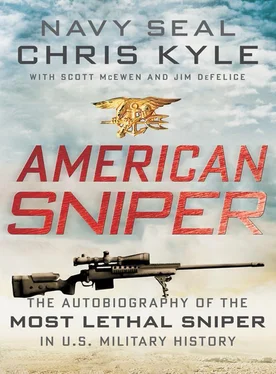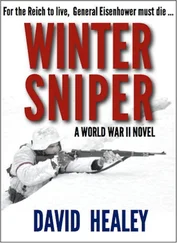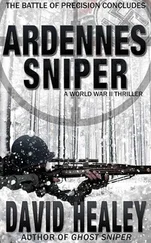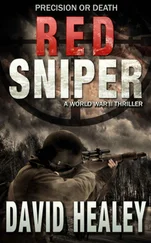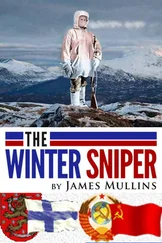I was assigned to Kilo Company, helping the Marine units on the western side of the city. They were the first wave of the assault, sweeping down block by block. Another company would come in behind them, securing the area and making sure that none of the insurgents snuck back in behind them. The idea was to clear Fallujah out, block by block.
The properties in this part of the city, as in many Iraqi cities, were walled off from their neighbors by thick brick and stucco walls. There were always nooks and crannies for insurgents to hide in. The backyards, usually flat with hard dirt or even cement, were rectangular mazes. It was a dry, dusty place, even with the river nearby. Most of the houses didn’t have running water; the water supply would be on the roof.
I worked with Marine snipers for several days during the first week or so of that phase of the assault. For much of the time I was paired with two Marine snipers and a JTAC, a SEAL who could call in air strikes. There would also be a few support guys, Marines who would provide security and occasionally help out with different tasks. These were Marines who wanted to be snipers; after their deployment, they were hoping to ship out to the Marine sniper school.
Every morning would start with about twenty minutes of what we called “fires”—mortars, artillery, bombs, missiles, rockets—it amounted to a hell of a lot of ordnance being dumped on key enemy positions. The fire would take out ammo caches or dumps, or soften up spots where we thought we’d have a lot of resistance. Black funnels of smoke would rise in the distance, caches hit by the bombings; the ground and air would rumble with secondary explosions.
At first, we were behind the Marine advance. But it didn’t take long before I realized we could do a better job by getting ahead of the squad on the ground. It gave us a better position, allowing us to surprise any insurgents who tried rallying to the ground unit.
It also gave us a hell of a lot more action. So we started taking houses to use as hides.
Once the bottom of the house was cleared, I’d run up the stairs from the top floor to the roof, emerging in the small shack that typically sheltered the entrance to the roof. Sure the roof was clear, I’d move over to the wall at the edge, get my bearings, and set up a position. Usually there would be something on the roof I could use—a chair or rugs—to make things more comfortable; if not, there was always something downstairs. I’d switched back to the Mk-11, realizing that most of my shots would be relatively close, because of the way the city was laid out. The weapon was more convenient than the Win Mag, and at these ranges just as deadly.
Meanwhile, the Marines on the ground would work down the street, usually side to side, clearing the houses. Once they reached a point where we could no longer cover them well, we’d move up and take a new spot, and the process would start over again.
Generally, we shot from roofs. They gave the best view and were often already equipped with chairs and the like. Most in the city were ringed by low-rise walls that provided protection when the enemy shot back. Plus, using the roofs allowed us to move quickly; the assault wouldn’t wait for us to take our time getting in position.
If the roof was no good, we would shoot from the upper story, usually out of a window. Once in a while, we would have to blow a sniper hole in the side of a wall to set up a firing position. That was rare, though; we didn’t want to draw more attention to our position by setting off an explosion, even if it was relatively small. (The holes were patched after we left.)
One day we set up inside a small office building that had been vacated some time before. We pulled the desks back from the windows and sat deep in the room; the natural shadows that played on the wall outside helped hide the position.
The enemies we were fighting were savage and well-armed. In just one house, the Marines found roughly two dozen guns, including machine guns and sniper rifles, along with homemade rocket stands and a mortar base.
That was just one house on a long block. It was a nice house, in fact—it had air conditioning, elaborate chandeliers, and fancy Western furniture. It made a good place to rest while we took a break one afternoon.
The houses were all searched carefully, but the weapons were usually pretty easy to find. The Marines would go inside and see a grenade launcher propped against a china cabinet—with rockets stacked next to the teacups below. At one house, Marines found dive tanks—apparently the insurgent who had been staying at the house used them to sneak across the river and make an attack.
Russian equipment was also common. Most of it was very old—in one house there were rifle grenades that could have been made during World War II. We found binoculars with old Communist hammer-and-sickle emblems. And IEDs, including some cemented into walls, were everywhere.
Alot of people who have written about the battles in Fallujah mention how fanatical the insurgents were. They were fanatical, but it wasn’t just religion that was driving them. A good many were pretty doped up.
Later on in the campaign, we took a hospital they’d been using at the outskirts of the city. There we found cooked spoons, drug works, and other evidence of how they prepared themselves. I’m not an expert, but it looked to me that they would cook up heroin and inject it before a battle. Other things I’ve heard said they would use prescription drugs and basically anything they could get to help get their courage up.
You could see that sometimes when you shot them. Some could take several bullets without seeming to feel it. They were driven by more than just religion and adrenaline, even more than blood lust. They were already halfway to Paradise, in their minds at least.
One day I came down from a roof to take a break and headed out into the backyard of the house with another SEAL sniper. I pulled open the bipod on my rifle and set it down.
All of a sudden there was an explosion right across from us, maybe ten feet away. I ducked, then turned and saw the cement block wall crumbling. Just beyond it were two insurgents, AKs slung over their shoulders. They looked as stunned as we must have; they, too, had been taking a break when a stray rocket hit or maybe some sort of IED went off.
It felt like an old western duel—whoever got to their pistol the quickest was going to live.
I grabbed mine and started shooting. My buddy did the same.
We hit them, but the slugs didn’t drop them. They turned the corner and ran through the house where they’d been, then cut out into the street.
As soon as they cleared the house, the Marines pulling security on the road shot them down.
At one point early in the battle an RPG hit the building I was working from.
It was an afternoon when I’d set up back from a window on the top floor. The Marines on the ground had started to take fire on the street ahead. I began covering them, taking down targets one by one. The Iraqis started firing back at me, fortunately not too accurately, which was usually the way they shot.
Then an RPG hit the side of the house. The wall took the brunt of the explosion, which was good news and bad news. On the plus side, it saved me from getting blasted. But the explosion also took down a good chunk of the wall. It crashed onto my legs, slamming my knees into the concrete and temporarily pinning me there.
It hurt like hell. I kicked some of the rubble off and kept firing at the bastards down the block.
“Everybody okay?” yelled one of the other boys I was with.
Читать дальше
